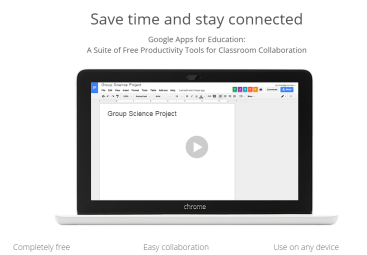 Image from Pixabay – geralt
Image from Pixabay – geralt
Has public education sold its soul to corporate interests in what amounts to a Faustian bargain?
 Image by GeoffS MorgueFile
Image by GeoffS MorgueFile
Did we do what now? Have we already? How do we find the balance?
FYI… you may know the term Faustian Bargain better as a deal with the devil…Dictionary.com explained
“Faust, in the legend, traded his soul to the devil in exchange for knowledge. To “strike a Faustian bargain” is to be willing to sacrifice anything to satisfy a limitless desire for knowledge or power.”
 Hmmmm do we have a limitless desire for knowledge? Do we take for granted how easy it is for us to access information? To become knowledge – we still have to process it in our brains and make sense of it otherwise it’s just data. Is our economy today based on knowledge and who has it? Or rather who’s willing to share it? Seems I have lots of questions this week.
Hmmmm do we have a limitless desire for knowledge? Do we take for granted how easy it is for us to access information? To become knowledge – we still have to process it in our brains and make sense of it otherwise it’s just data. Is our economy today based on knowledge and who has it? Or rather who’s willing to share it? Seems I have lots of questions this week.
(Image from Pixabay – Geralt CC0 Public Domain)
So do we take a bus trip or boat trip this week? Or are we already on a high speed train with the details flying by so fast that we are distracted by the comforts of high speed travel? As with most ECI 830 debate topics, this one raised some very interesting points. How far down the track are we? Have we gone off the rails? Hang on this week’s reflection looks comfy but there’s a lot more happening outside the train than we may realize….

Pixabay – Si_Platt – CC0 Public Domain
Do you even know what train you are on?
- GAFE… Google Apps for Education
- Have you opted for Apple instead?
- Perhaps it’s a CLEVR dash of StudentsAchieve, a cup of Maplewood, mixed with SKOPUS, delivered through Community Net with a side of SharePoint;)
- What kind of vending machines are found in your building?
- How do donations impact your school?
- Do sponsor names cover your school uniforms?
First let me say we had an amazing array of presenters this week including our very own ECI 830 colleagues Tyler and Justine paired against our guests – Dean Shareski and his team Kyle Schutt and David Fisher. Following the debate Audrey Watters of Hack Education shared her thoughts on the stories we tell ourselves about the connections between education and business. Perhaps things aren’t as clear cut as we might first think.
I’m a Google fan but Tuesday’s debate has me wondering just how much does Google know about me based on my let’s say variety of Google Accounts and extensive use of Google Apps? Is it wrong that Google is my preferred search engine? Has popular culture ingrained it in me? It all made me wonder just when did Google get “verbed?” Anderson explained that “Google” became a verb in 2006, a marketing dream, however, “for the companies themselves, though, being “verbed” has its dark side. A company that does not defend its trademark risks losing it when it becomes a common figure of speech” (para 1). The article is old so laws may have changed since then but it’s an interesting commentary that reaching common phrase status can also affect trademarks.
 Andrea Peterson’s (2015) article “Google is tracking students as it sells more products to schools, privacy advocates warn” noted that there’s a concern going forward about just how much information Google is collecting on our students as only certain apps are private. Step outside those faint lines and Google will begin to build a profile. Peterson asked is Google quickly becoming as common in school as pencils and erasers?
Andrea Peterson’s (2015) article “Google is tracking students as it sells more products to schools, privacy advocates warn” noted that there’s a concern going forward about just how much information Google is collecting on our students as only certain apps are private. Step outside those faint lines and Google will begin to build a profile. Peterson asked is Google quickly becoming as common in school as pencils and erasers?
(Image from Pixabay – Wdnet – CC0 Public Domain)
I find it interesting that we go to google for anonymity. Think of the questions that we would only ask Google…rather than our own Doctor, but ironically Google remembers more about what we are looking for than we do.
You may want to check out some of the links found in this post, 6 Links that will show you what Google knows about you.
Just how deeply embedded into our lives and our classrooms are corporate influences? I’m not saying this is good or bad, I’m just asking you to consider for a moment just how much we are surrounded by brands.
Molnar (2001) examined the history of corporate marketing in US public education. He noted, “Unfortunately, to this point in America, policy makers have devoted much less time to thinking through the constraints that may be necessary on corporate involvement
in the schools than considering ways to expand school-business partnerships.” As Dean Shareski reminded us during the debate, it’s important for schools and divisions to consider how partnerships align with division and ministry initiatives. It’s important to be smart and ethical with whom you choose to create partnerships. He also reminded us that schools have always had a connection with the private sector… think about all of the supplies required to run a school. We are inextricably linked to corporations, but it’s important as Shareski mentioned to look at underlying values of the companies. Yes they all need to make money to survive? But I’d like to hope that some want to partner with schools because they believe they can make a difference for our students not just the bottom line.
Do any of your resources come from Pearson? Likely at some point you’ve crossed paths with this “multi-national conglomerate” (Singer, 2012, para 2). Until the debate, I didn’t realize just how intricately networked Pearson was in the world of education from the traditional textbook to delivering assessments to funding educational research. It’s just not something I reflect on daily, there are different aspects demanding my daily attention. I look for the resource that will best meet the need of my team…I’ve never really stopped to think about how often I prefer one company over another… or does Google do that for me?
Tyler and Justine shared this video which provides another interesting perspective,
In what the Saskatchewan Government proclaims to be transformational times in terms of education and health care in Saskatchewan, I wonder what the long and short term costs will be to our students. When divisions are required to make it work what is it that disappears. I’d like to hope it’s not the people providing the education. As Watters mentioned computers don’t care about us, they respond to code. What worries me is that educators are encouraged to be innovative and creative in response to decreased funding…what state of vulnerability does that leave schools in when corporations offer to invest in your school? It’s not that any one school or division would purposefully set out to lose control over the goals of education but what happens when it’s —find a partnership or decrease class offerings to students. Are the Faustian bargains mentioned in our debate statement closer than we care to think?
So let’s consider “How Corporations Are Helping To Solve The Education Crisis.” Schiller and Arena (2012) noted that 80% of jobs in the next decade will need science, technology and math and they cited a McKinsey study warning that two-thirds of those jobs don’t even exist yet (para. 3). Schiller and Arena explained that companies like Microsoft are taking corporate citizenship and social innovation to a new level to help decrease the opportunity divide. VP of Microsoft Worldwide Education, Anthony Salcito explained
“It’s not just about technology. It’s about bringing innovation to schools. How do you personalize the education experience? How do you incorporate new modes of classroom design and curriculum, or think about assessment differently? How do you change a kid’s vision of his future?…. We have to acknowledge that learning is shifting away from content memorization to a more relevant, personalized, skill-based foundation. We have to dig deeper, think harder and get more engaged to determine what change is needed and then push the pieces forward. We also have to bring a culture of sustainability to the process of transforming education.”
And that’s great as long as our partnership goals are to create positive learning environments where students are encouraged to become engaged, literate, critical thinkers. Will being surrounded by certain types of products unconsciously influence our choices? Just a question…or are we always influenced by the choices of our peers, colleagues and family members? Then again back to the importance of empowering students to become engage citizens who can think for themselves.
During the debate I asked where the bright spots are in educational partnerships. In “The Switch” Chip and Dan Heath encouraged us to look for the bright spots. “When it’s time to change, we must look for bright spots — the first signs that things are working, …. We need to ask ourselves a question that sounds simple but is, in fact, deeply unnatural: What’s working and how can we do more of it?” (2010, para. 12). Alec explained that it’s not easy to find balanced published research on this or perhaps more to the point there’s research; however, only the positive research gets published…I used to joke with my senior science students to keep asking questions, to be critical, to ask who funded the study…. to follow the money.
 Screenshot from Google for Education
Screenshot from Google for Education
I found the Google for Education case studies interesting. Lots of positive examples of how to collaborate and grow… bright spots? I did find it interesting, how some of the case studies were phrased….”Unfortunately, the Windows devices the school had at the time were clunky, slow, and difficult for students to use….” The solution…“We chose Google Apps for Education, touchscreen Chromebooks,and Google Classroom because they deliver the type of experience that our students need and deserve.” Just interesting the choice of words.
Just to clarify at this point… I’m a Google fan. I’ve been said to drive the Google Bus encouraging people to join. I like Google Apps for education and how it works in my own business. It’s convenient and it does what it needs to do for me and I will continue to use Google and Sharepoint and Microsoft… but I do wonder now more than ever…
[perhaps that’s a result of 22 months of Educational Technology and Design Masters program or the great conversations I’ve had the opportunity to have with professors and fellow students.]
I do wonder… what is it that I really need to worry about in terms of service, in where my info goes and who has it…. or how much have my current choices been influenced by my choice of educational institutions. We all make choices every day. We do the best we can with what we have and as long as each day we learn more and try to do better than the day before. We will learn from the journey we are on and maybe just maybe we can relax on that high speed training knowing what’s whizzing by outside and that in the end it will help get us to our destination and our next learning adventure.
We were fortunate to have Audrey Watters of Hack Education join us for our #ECI830 class and if you haven’t checked out her Hack Education blog it’s well worth your time. In fact, be sure to take a look at “Ed-Tech and the Commercialization of School” follow up post to our class conversation. Watters (2016) reminded us that testing is a part of the Ed-Tech and corporate interests web. Just think about the business of testing.
She also contended that we seem to develop
“an amnesia of sorts. We forget all history – all history of technology, all history of education. Everything is new. Every problem is new. Every product is new. We’re the first to experience the world this way; we’re the first to try to devise solutions.” (Hack Education, 2016)
Both Watters and Shareski pointed out that we’ve always had a relationship with the corporate sector. In fact it’s been a part of life for schools since we’ve needed things like pens, pencils, phones, chalkboards or books. In particular, I was intrigued by her references to the stories we tell ourselves. Stories resonate with me and it’s how we make sense of and remember the world… perhaps not always accurately as our stories are influenced by our own perspectives.
 Pixabay – jarmoluk – CC0 Public Domain
Pixabay – jarmoluk – CC0 Public Domain
Watters noted that we need to look at how
“the relationship between public schools and vendors has changed over time: what’s being sold, who’s doing the selling, and how all that influences what happens in the classroom and what happens in the stories society tells itself about education.” (Hack Education, 2016)
She cautioned us that schools have always been failing and business models and the faith that data will save us is not new. We just have more ways to collect data, process the data and to look at the data. There’s a innate discrepancy of being efficient and the messiness of learning. It’s an important reminder to all of us “Humans are not widgets. The cultivation of the mind cannot be mechanized. It should not be mechanized” (Watters, 2016)
I’m thankful to have crossed paths with Audrey Watters, hers is a blog I will continue to read as it provides a thoughtful lens with which to consider our world. I leave you with her closing lines:
“The money matters. But I’d contend that the narratives that powerful people tell about education and technology might matter even more.”(Hack Education, 2016)
It’s about the stories we share and we have, now more than ever before, a way to share our stories. And so I leave you with:
this is my story, but what’s yours?
Here are thoughts on this week’s blog from a few of my talented and thoughtful ECI 830 Colleagues:
- Kyle – Deals with the Devil, or maybe just not with Bill Gates?
- Chalyn’s post – Selling Souls in the name of education made me wonder… how the future of sponsorship will play out. As we approach graduation, her post made me think about all of the Memorial Scholarships that we hand out at Grad – people have donated money with specific requirements for a lasting legacy. While others have reached a certain level of donation and have had an academic scholarship named after them – in this case our committee attaches the requirements not the group or individual that donated the money. I think it depends on why people or businesses do what they do… do I give money because I want something from it or because it will make life better for others? Then again the Scholarship Fund is separate from school – we are a non-profit that gives back….It’s really more complicated than we first imagine.
- Dean’s post – Name Your Price – made me think about how sponsorship changes over time…what impact does that have as names come and go?
- Luke shared “The important consideration becomes whether the corporate involvement in schools is actually providing enhanced learning for students.” Partnerships with corporations have the potential to connected talented industry leaders with students as part of the their educational journey. Is that good or bad? Does it come at a price?

Very informative and thought-provoking read! We aren’t anything but stories, in the end anyway 🙂
Your discussion about google reminded me of a piece of satire I get my kids to read about privacy and google: http://www.wired.com/2013/05/on-google-island/ — Welcome to Google Island.
It kind of ties all of those arguments and future fears together.
LikeLiked by 1 person
Thank-you Kelsie. Very interesting read. What kind of response do you get from your students?
LikeLike
Half of them get it and half of them think it’s in praise of Ethiopian or Somalian law 😦
LikeLike
The challenge of satire: )
LikeLike
Wow! Interesting and impressive blog (as always Stephanie). I wish I had even a tenth of your technology knowledge – even for your blog layout 🙂 angela
LikeLiked by 1 person
Thanks Angela. I appreciate your kind words! I enjoy reading everyone’s blogs. We all bring different perspectives and that’s the best part.. learning from each blog post. WordPress does all the work for the layout : )
LikeLike
I love that you are a storied person and how it comes through in your writing.
LikeLiked by 1 person
Thank you! I find its the stories that draw us in 🙂
LikeLike
Another impressive summary this week. I agree with the comments already posted- Great job!
LikeLiked by 1 person
I have to agree with the other commenters as well. I continue to learn a lot from your blogs, Google+ posts, and tweets. Great summary Stephanie!
LikeLiked by 1 person
Thanks Dean! I enjoy learning from your posts as well!
LikeLike